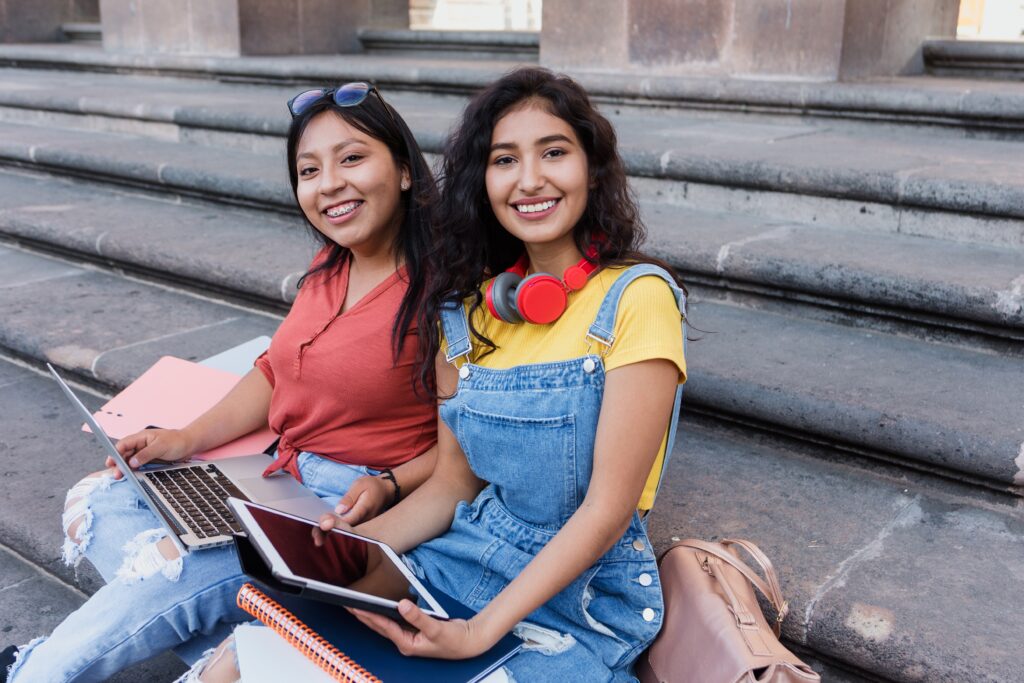How is new tech changing business in Latin America? Cristina Gamboa Peralta (London Business School, MBA2025) reports.

The terms ‘sustainability’, ‘financial inclusion’, ‘social mobility’, and ‘value creation’ have permeated the vocabulary of business. People are driven not just by personal success but by the desire to make a positive impact. This mindset has transcended academia, shaping the ethos of global companies.
Over the past decade, financial institutions across the world have democratised financial services and educated consumers about the system’s inner workings and its potential benefits. This change comes amid the rise of FinTech payment companies and Neo banks.
In the last five years, Latin America has undergone a remarkable transformation, evolving into a rapidly changing landscape that harmonises the crucial trio for banking progress: governments, financial institutions, and private entities – including FinTechs. This collaboration has facilitated unprecedented access to financial products and services for a larger segment of the population. New regulations, technology infusion, and the adoption of best practices have driven positive change. It is worth noting that the pandemic also played a significant role in this digital revolution by accelerating the process of digitization and bolstering digital infrastructure. As a result, approximately 80% of the population now has access to banking services, with 63% utilising digital platforms such as mobile wallets and QR codes (Mastercard New Payment Index, 2022). Despite this progress, fewer than 60% have access to loans, with an even lower percentage among women.
Yes, it is true that the gender gap is gradually narrowing, albeit at varying rates across different countries. But the latest data from the World Bank (2021) and UN Women (2023) indicates that fewer than 50% of women possess a bank account across all Latin American countries. It also demonstrates a disparity of nearly 15% between men and women concerning loan applications, and almost 20% regarding savings. The underlying reasons for these discrepancies are rooted in historical and cultural factors. For instance, in Colombia, for every 100 pesos a man earns in total labor income, a woman earns only 87.1 pesos (DANE, 2020). Furthermore, women often face limited access to property ownership and encounter cultural barriers that hinder their financial independence.
What developments have we witnessed in the last 3-5 years?
Governments and private companies have collaborated in establishing microfinance programs and favourable initiatives, giving rise to specialised institutions like Banco Mundo Mujer in Colombia. This NGO, conceived in 1985 to support low-income households, swiftly grew into Colombia’s leading rural microcredit company before transitioning into a full-fledged bank. Despite these strides, achieving financial equality and comprehensive system support remains a pressing goal.
What’s the next chapter, and what opportunities await individuals, businesses, and the economy as a whole?
These were hot topics at the recent Tech@LBS conference, where experts debated the future of technology within the financial realm. While there is a sense of saturation in the payments industry, the big question looms: have we explored all possibilities? Is the consumer ready to navigate more intricate financial institutions? The answers are yet to unfold. However, the undeniable impact of the FinTech boom lies in its ability to educate the masses. Now, our challenge lies in the continued reduction of poverty, promoting financial education to enhance savings and investments, fostering resilience against financial crises, and combating informality. Additionally, addressing the current barriers faced by women and rural residents in accessing and remaining within the financial system is paramount. The path ahead involves shaping a future where financial inclusivity is not just a goal but an everyday reality.
About the author

Cristina Gamboa Peralta, MBA2025 is an Outreach and Communications Intern at the Wheeler Institute for Business and Development. Cristina holds both a Bachelor of Business Administration and a Bachelor of Laws from Universidad de los Andes, Bogota, Colombia. Before LBS, she worked as a Senior Associate at Boston Consulting Group (BCG), where she co-led a range of social impact projects with Compartamos con Colombia and various social enterprises, and initiated BCG’s first podcast for net-zero, social impact, and sustainability. Cristina has a keen interest in social impact and business solutions as a force for good, particularly in developing countries.
Discover our research portal and subscribe to our mailing list now
